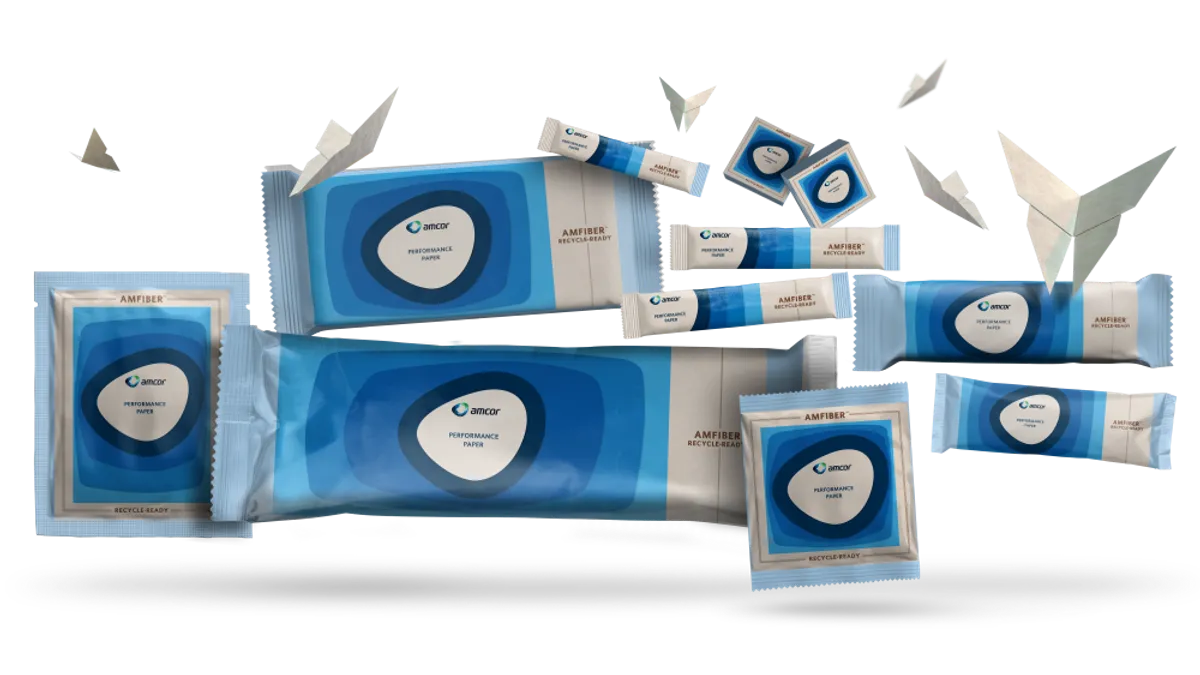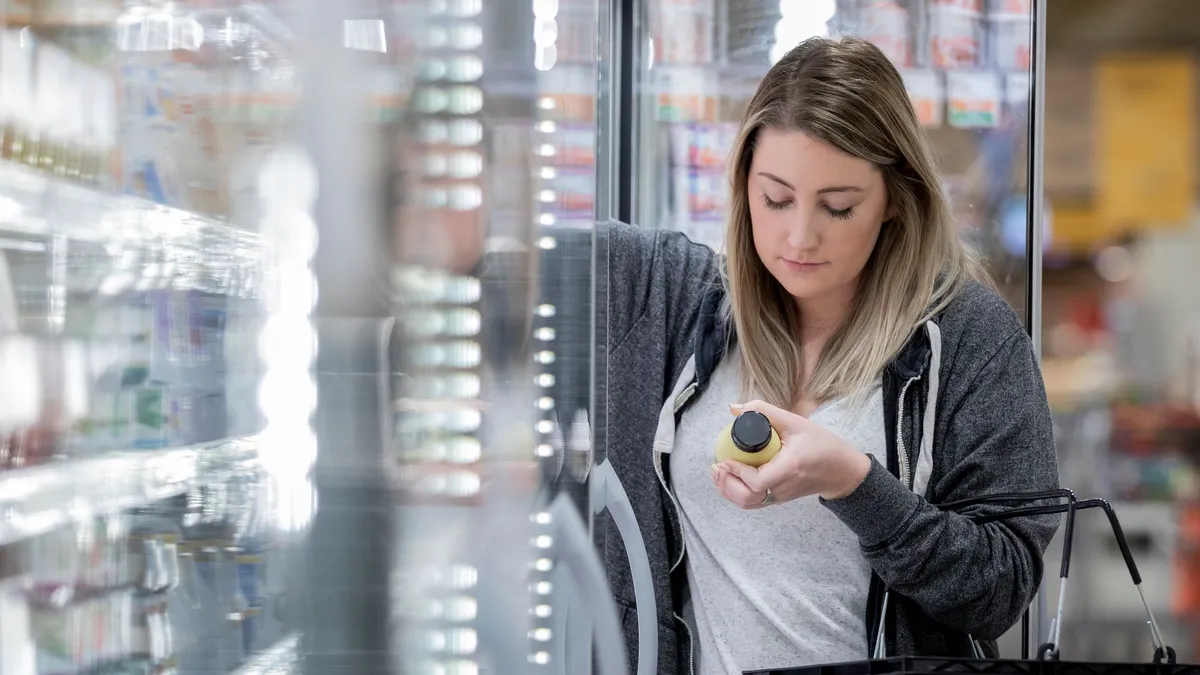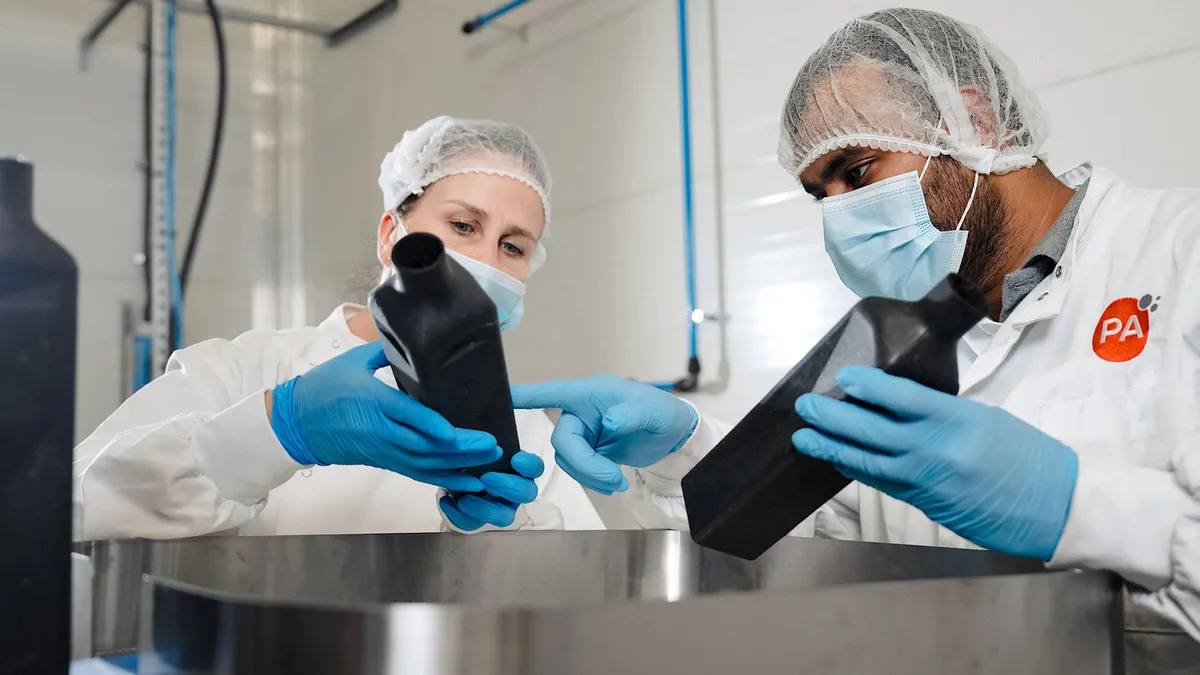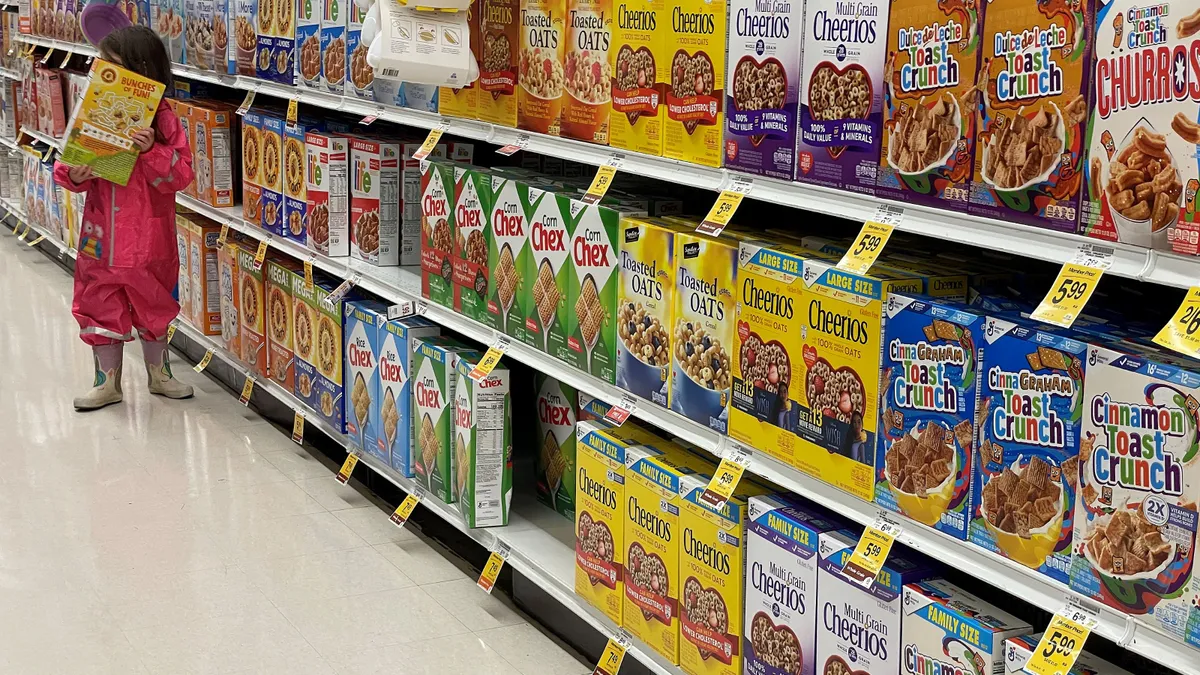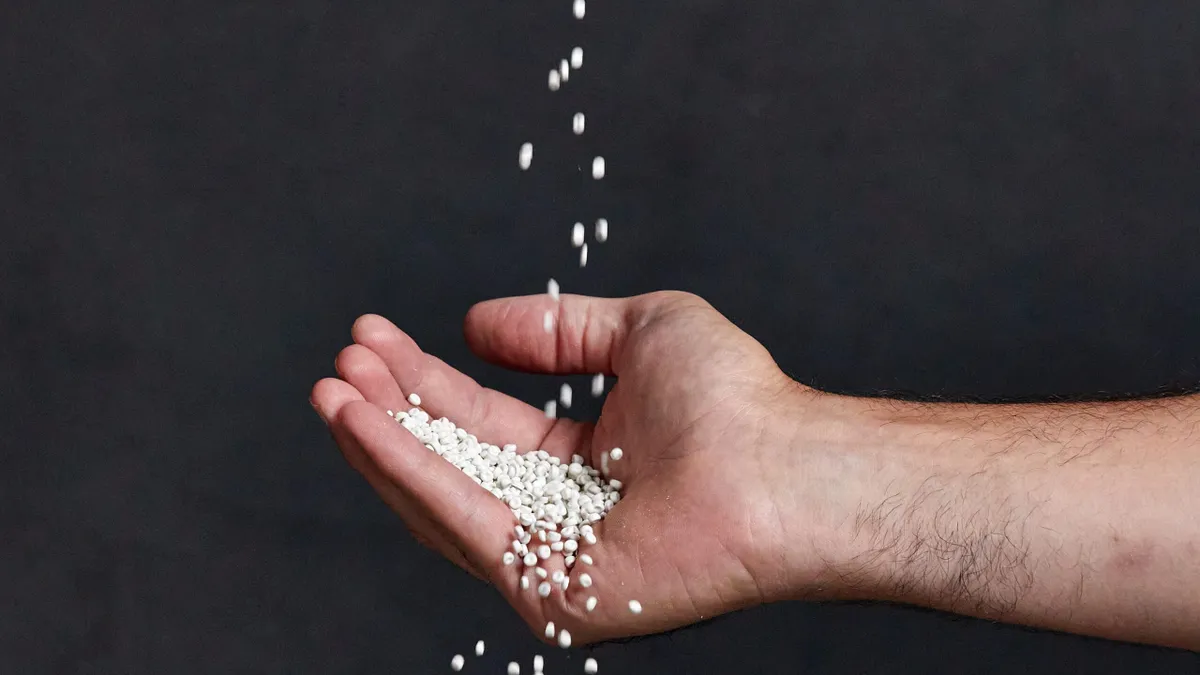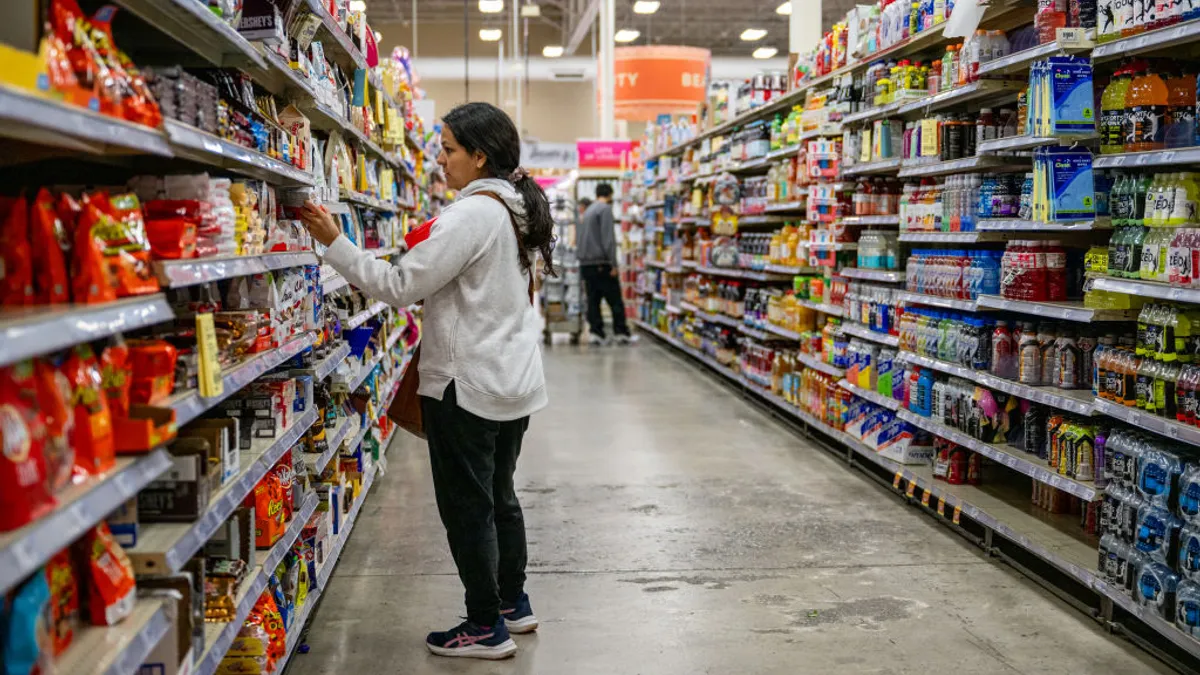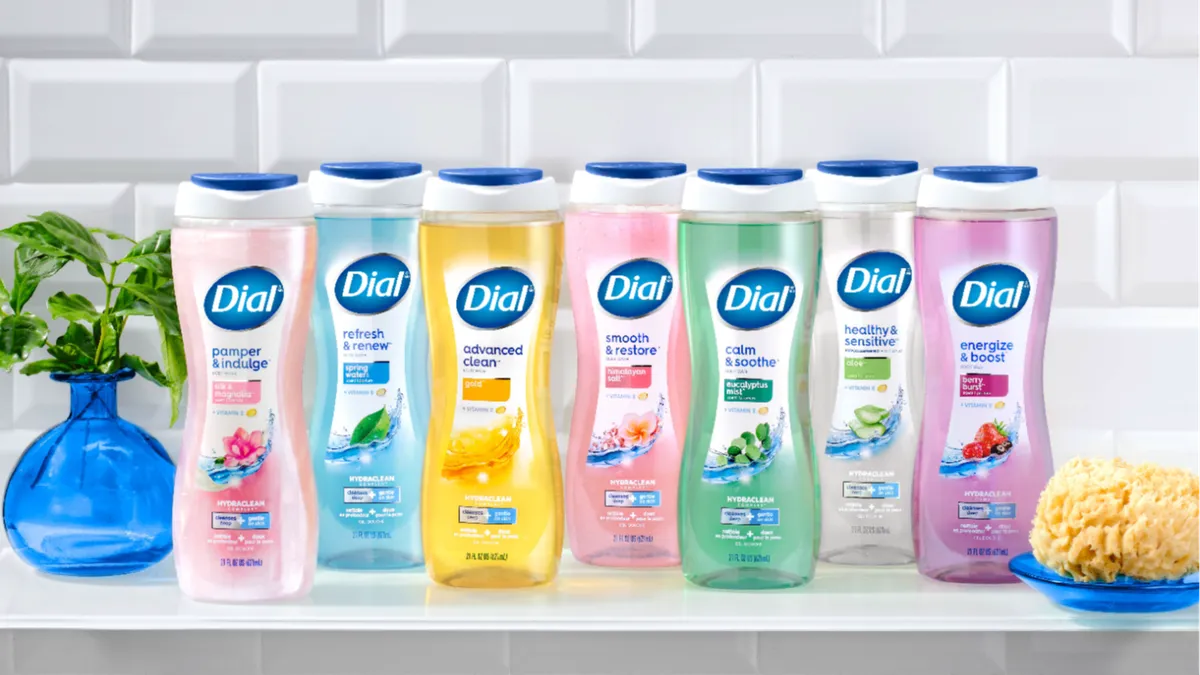Amcor reduced its direct and indirect greenhouse gas emissions in the fiscal year ended June 30, according to the global packaging company’s 2023 sustainability report released last week. The 10.2% year-over-year reduction in absolute emissions across scope 1, 2 and 3 emissions came as the company developed and submitted absolute emissions reduction targets for approval by the Science Based Targets initiative — a distinction that more and more peers are attaining — which Amcor expects will be confirmed sometime in fiscal year 2024.
As dealing with flexible packaging at end of life and growing the use of recycled material continue to be challenges, Amcor is also heralding chemical recycling as an important solution going forward for itself and customers. The company touted new deals in FY23 that will provide “thousands of tons of high performance certified-circular chemically recycled material.”
Designing for circularity
Like many other packaging manufacturers and brands, Amcor is aiming for 100% of its packaging to be recyclable, reusable or compostable by 2025. Amcor says that in 2018 it became the first global packaging company to make that pledge.
Recyclable or “recycle-ready” products represent the lion’s share of that goal. Approximately 74% of Amcor’s total packaging produced in FY23 by weight met recyclable or recycle-ready criteria.
Among rigid packaging, 95% of the portfolio, by weight, was considered recyclable. On the other hand, in Amcor’s larger flexible packaging portfolio, the company reported 89% “has a recycle-ready solution available.” Amcor’s “recycle-ready” metric assesses packaging designed for recyclability — but acknowledges that infrastructure, sorting and other important factors that ensure recycling in practice may not be widely available.
When asked during a recent earnings call about efforts to shrink the share of unrecyclable products and the likelihood of hitting the 2025 target, CEO Ron Delia said the company has “been making really good progress. It's substantially improved over even three, four years ago. And we're going to continue to close that gap.”
“Are we going to get all the way to 100%? I'm not sure. I think we're going to get really close. Some of the more sophisticated structures where the material is providing multiple types of functionalities, whether it's barrier or sealing strength or physical strength ... Those will take the longest, but we're still at it. We're hard at it and we haven't wavered in our ambition to get to 100%,” Delia said.
Amcor offered few firm updates regarding how much of its packaging is either compostable or reusable, though the company does have investments in startups that specialize more in these areas.
Amcor noted it offers “several” compostable packaging solutions, including in fresh produce film. “We collaborate closely with our customers to assess opportunities for compostable packaging on a case-by-case basis in order to ensure they identify the packaging solutions that are truly best from an environmental and branding perspective,” the company reported.
In reusable solutions, refillable beverage containers is a key market. But revenue from reusable packaging systems was $13 million during the year, basically flat year over year, far less than 1% of the company’s overall sales.
Chemical recycling
Mechanically recycled materials have regulatory and technical limitations when it comes to food-contact packaging or flexible packaging, making chemically recycled materials all the more important in Amcor’s view. The flexible packaging challenge is significant: those products made up more than three-quarters of Amcor's sales in FY23.
During FY23, Amcor incorporated chemically recycled content in projects across all of its flexible packaging business groups, including in packaging for condiments, confectionery products, ice cream bars, menstrual care products, diaper overwraps, tissue and towel film and shrink film for bottled water.
In FY23, Amcor purchased “certified circular” PE and PP material from ExxonMobil via the company’s advanced recycling facility in Baytown, Texas, part of a five-year deal to help Amcor reach its goal of having 30% recycled material across its portfolio by 2030. “We offer this new material across our global portfolio, providing customers in the healthcare and food industries with circular content in a variety of solutions and applications,” Amcor reported.
In Australia, Amcor has worked this past year with food, snack and candy company Mondelēz International and recycling technology company Licella on a facility meant to “recycle end-of-life plastic back into a crude oil substitute suitable to produce new food-grade plastic packaging.” Amcor also recently announced a memorandum of understanding with South Korea-based petrochemical company SK Geo Centric to source chemically recycled material in the Asia-Pacific region starting in 2025.



